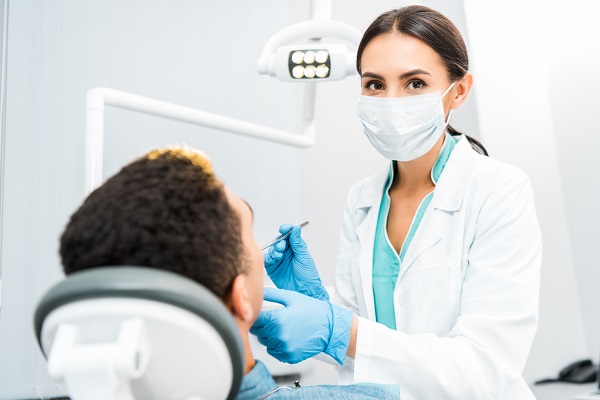Treating Periodontal Disease With Laser Dentistry

Laser dentistry involves the use of lasers to treat particular dental conditions. Lasers can make dental treatments not only more efficient but also comfortable. Dentists use laser dentistry in several procedures, including treating periodontal disease. Periodontal disease, also referred to as gum disease, affects many people. It is an infection of the bone as well as supporting tissues that hold your teeth in place. Read on to learn more about how laser therapy works and its risk and benefits.
Laser dentistry
Several factors can often cause periodontal disease. These include poor oral hygiene, smoking, or chronic illnesses such as diabetes. Other causes include particular medications or genetic susceptibility. There are several treatment options for the condition, including scaling and root planing.
This is a common non-surgical treatment method. It involves cleaning the teeth’s surfaces as well as their root. It helps to remove bacteria, plaque, and tartar from the gum surrounding the root. It also promotes the healthy regeneration of gum tissue. A dental provider may recommend gum flap surgery.
Laser therapy
Dentists use a dental laser to remove the inflamed gum tissue from the tooth’s root. Once the dentist removes the infected tissue and the root is exposed, the root scaling starts. It involves scraping off the calculus and plaque from below the gumline and around the root. The dentist will then use particular instruments to remove rough spots. These spots can attract bacteria and contribute to future infections. The area between the root and the gum can then regenerate during the healing process.
Benefits of laser dentistry
There are several benefits of using lasers to treat gum disease. Laser treatments cause minimal trauma to the gum, tooth, as well as the surrounding areas. As a result, healing time is reduced significantly compared to traditional surgery. Patients will also recover quicker. Lasers can target the diseased area accurately, which is beneficial.
Periodontal therapy is less invasive, which limits pain, bleeding, and swelling. It is vital to maintain a good oral hygiene program after undergoing treatment. This will help minimize the chances of the recurrence of the inflammation. Brushing teeth every day and rinsing regularly with an antimicrobial product is advisable.
Patients should follow any instructions from the dental provider as closely as possible. But patients should be aware that there are some risks to the use of lasers. Every laser has varied wavelengths and power levels. The use of lasers can be effective during different periodontal procedures. But laser periodontal therapy may cause damage to periodontal tissues. This can happen if a laser of an inappropriate power level or wavelength is used.
Talk to your dentist today
Laser periodontal therapy is still relatively new. But some studies have shown that it can help to treat periodontal disease. You should be aware of advertising that sounds too good to be true. A dental provider can help you separate fact from hype. To learn more about laser dentistry, talk to your dentist today. The professional will be able to answer any questions you have about laser treatment.
Are you considering laser dentistry in the Sacramento area? Get more information at https://www.sacramentosleepdentist.com.
Check out what others are saying about our services on Yelp: Read our Yelp reviews.
Recent Posts
Having a dental X-ray is essential at a dental checkup to find decay and other teeth issues. Managing and diagnosing different conditions often happens with an X-ray. The dentist can use the X-ray if it is hard to detect the problems with a simple visual exam. The X-ray can take images of the jaw, tooth…
Most dental patients do not set a dental checkup for a dental filling. It is either they are suffering from dental anxiety, or they do not see any holes in their teeth to fill. What may seem like a normal tooth may already need fillings. A dental checkup can determine if the patient needs a…
Worried about dental emergencies and what you should do if one occurs? Continue reading to find out more. Dental emergencies can be frightening, especially when they involve a broken tooth. However, it is important to know that modern-day dentistry has allowed for the evolution of a lot of different treatments to address and treat dental…
Although a dentist provides services on a patient-by-patient basis, the one thing strongly encouraged for everyone is to have a dental checkup every six months. This schedule is what the industry recommends and for good reasons. While some dentists agree this is sufficient, others feel that under certain circumstances a person should visit a clinic…


